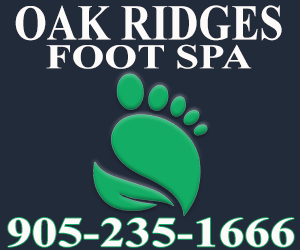S
Scott McCaffrey
Guest
The Fairfax County Board of Supervisors signaled initial support on Tuesday (May 20) for moving forward with the first rewrite of the county’s massage therapy regulations in a quarter-century.
Staff have proposed shifting regulatory oversight from the county’s Department of Cable & Consumer Services to the Health Department. Individual massage therapists would no longer need to obtain a county license or pay the associated fee, as they’re already licensed by the Virginia Department of Health Professions.
In addition, provisions for more quickly responding to concerns raised about individual establishments would be put in place.
While most massage therapy venues are reputable, “there are some bad actors,” Fairfax County Deputy Director of Public Health Operations Jessica Werder said at the board’s Safety and Security Committee meeting.
The Department of Cable & Consumer Affairs “does not have a lot of tools” to address potential problems, while the health department does, she said.
The county originally adopted an ordinance regulating massage businesses in 1975 and last completed a rewrite in 2000.
About 550 massage therapists are licensed across the county, staff said, down from more than 700 in the pre-pandemic era. There are about 287 licensed establishments, found across all nine county magisterial districts.
The county has issued a total of 1,961 massage establishment permits over the past decade, including 66 permits this year, as of April 23. Only two permit requests have been denied since fiscal year 2016, which ran from July 1, 2015 to June 30, 2016.

Fairfax County Deputy Director of Public Health Operations Jessica Werder (screenshot via Fairfax County)
The Board of Supervisors had requested a review of the existing massage therapy ordinance in March 2020, and County Executive Bryan Hill recommended strengthening the regulations in February 2022.
The new provisions include:
While none of the proposals are cast in stone, they were received positively by supervisors who spoke at the meeting.
“This makes logical sense. [It is] the right way to go,” Board Chairman Jeff McKay said.
McKay said the goal is to weed out “bad actors” in the industry, while streamlining regulatory processes for others.
Sully District Supervisor Kathy Smith said removing the requirement that therapists be licensed at both the local and state levels makes sense.
“It’s great to get rid of redundancy,” she said.
Springfield District Supervisor Pat Herrity, one of the supervisors who had requested revisions to the ordinance in 2020, called for robust outreach to the massage industry before the changes are officially brought to the board for a vote.
“We want to make sure we are not creating obstacles to legitimate massage establishments. There are a lot of them,” he said.
Under the proposed timetable, county staff will conduct outreach through the summer and early fall before preparing final language for the updated ordinance for the board’s consideration by the end of the year. If enacted, the new rules could be in place at the start of 2026.
Staff have proposed shifting regulatory oversight from the county’s Department of Cable & Consumer Services to the Health Department. Individual massage therapists would no longer need to obtain a county license or pay the associated fee, as they’re already licensed by the Virginia Department of Health Professions.
In addition, provisions for more quickly responding to concerns raised about individual establishments would be put in place.
While most massage therapy venues are reputable, “there are some bad actors,” Fairfax County Deputy Director of Public Health Operations Jessica Werder said at the board’s Safety and Security Committee meeting.
The Department of Cable & Consumer Affairs “does not have a lot of tools” to address potential problems, while the health department does, she said.
The county originally adopted an ordinance regulating massage businesses in 1975 and last completed a rewrite in 2000.
About 550 massage therapists are licensed across the county, staff said, down from more than 700 in the pre-pandemic era. There are about 287 licensed establishments, found across all nine county magisterial districts.
The county has issued a total of 1,961 massage establishment permits over the past decade, including 66 permits this year, as of April 23. Only two permit requests have been denied since fiscal year 2016, which ran from July 1, 2015 to June 30, 2016.

Fairfax County Deputy Director of Public Health Operations Jessica Werder (screenshot via Fairfax County)
The Board of Supervisors had requested a review of the existing massage therapy ordinance in March 2020, and County Executive Bryan Hill recommended strengthening the regulations in February 2022.
The new provisions include:
- A prohibition on controlled entry via locked doors
- Therapists can’t have sleeping quarters in or adjacent to a facility
- Ban on employees drinking alcohol on the premises and possessing or using illicit controlled substances
- Establishments would be prohibited from advertising with “obscene, erotic or sexual explicit” words or imagery
- Outlets with identified issues could be required to complete staff training
- Venues could be required to provide county officials with financial records
- The annual permit fee of $75 per location — set when the ordinance was last updated in 2000 — would increase to $200
While none of the proposals are cast in stone, they were received positively by supervisors who spoke at the meeting.
“This makes logical sense. [It is] the right way to go,” Board Chairman Jeff McKay said.
McKay said the goal is to weed out “bad actors” in the industry, while streamlining regulatory processes for others.
Sully District Supervisor Kathy Smith said removing the requirement that therapists be licensed at both the local and state levels makes sense.
“It’s great to get rid of redundancy,” she said.
Springfield District Supervisor Pat Herrity, one of the supervisors who had requested revisions to the ordinance in 2020, called for robust outreach to the massage industry before the changes are officially brought to the board for a vote.
“We want to make sure we are not creating obstacles to legitimate massage establishments. There are a lot of them,” he said.
Under the proposed timetable, county staff will conduct outreach through the summer and early fall before preparing final language for the updated ordinance for the board’s consideration by the end of the year. If enacted, the new rules could be in place at the start of 2026.




























































































